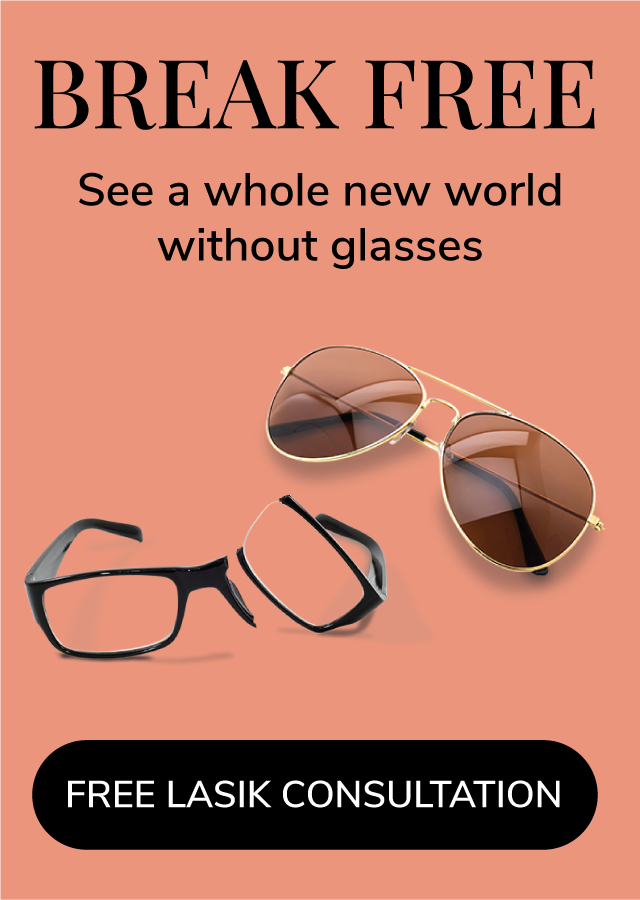Typically, laser vision correction aims to eliminate the need for glasses and contacts. But if you are over 40 requiring distance vision correction, you may wonder how that freedom is achieved considering the near vision problems occurring with age. Monovision through LASIK can help patients achieve reasonable distance and near vision without glasses, contacts, bifocals, and the like.
Presbyopia After 40
Near vision problems after 40 stems from an unavoidable age-related condition called presbyopia, or “old eye” in Greek. Presbyopia is when your eyes slowly lose the ability to see things up close. For example, reading a book, phone, or a menu becomes a challenge, and you must rely on ‘readers’ to get by.
The clear lens sits inside your eye behind your coloured iris and changes shape to focus light onto the retina. The lens is soft and flexible when you are young, allowing you to focus on objects near and far. After the age of 40, the lens becomes more rigid and inflexible, making it harder to see up close.
Relying on glasses or bifocals can be inconvenient and cosmetically unappealing for many people. Monovision is an option worth considering providing good near acuity without compromising on appearance.
Monovision to Treat Presbyopia
With Monovision, one eye is treated for distance, and the other eye is treated for near focus. Um, pardon?
Monovision corrects the dominant eye for distance focus, and the other eye is corrected for near focus. Both eyes work together, allowing you to see both near and far. While seemingly complicated, our brains can adapt well to this technique over time (which can take a few weeks).
This is why doctors usually recommend trying Monovision first with contact lenses before committing to LASIK surgery. Suppose you are satisfied and can tolerate Monovision with contact lenses, and you are seeking the convenience of a “glasses-free” lifestyle. In that case, Monovision laser vision correction is a great option.
Drawbacks to Monovision
Monovision correction works excellent for those wanting absolute freedom from glasses or contacts, but it does have some drawbacks.
- Monovision can adversely affect depth perception.
- Monovision can affect night vision.
- Monovision can lead to eye strain (if you spend much of your time reading up close).
- Monovision can produce glare with night driving.
- Monovision does not produce perfect results for near and distance vision.
If you are over the age of 40 and considering monovision LASIK, you should consider your expectations of the outcome and the drawbacks listed above. Consulting with a great LASIK surgeon will give you the peace of mind and confidence to choose the correct option based on your candidacy.
For more reading on the pros and cons of monovision LASIK, check out The Scoop on LASIK After 40.
SAVE $800 ON LASIK FOR A LIMITED TIME
Book a free, no-pressure consultation today to save $800 on your procedure. We'll also discuss financing options to help you find the best way to get clear vision sooner!
![Corvue-Horizontal-Logo-gradient[rgb]-black-text Corvue-Horizontal-Logo-gradient[rgb]-black-text](https://corvue.ca/app/uploads/2017/10/Corvue-Horizontal-Logo-gradientrgb-black-text.png)

